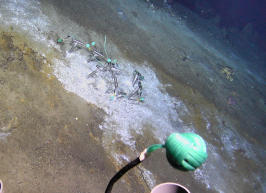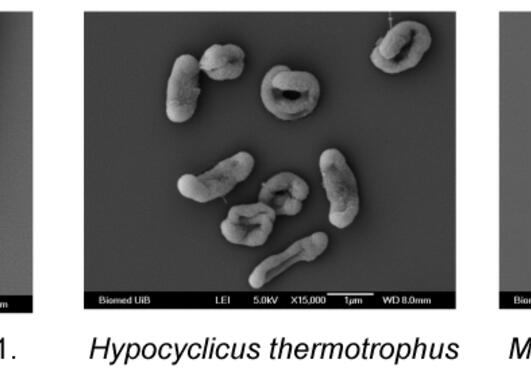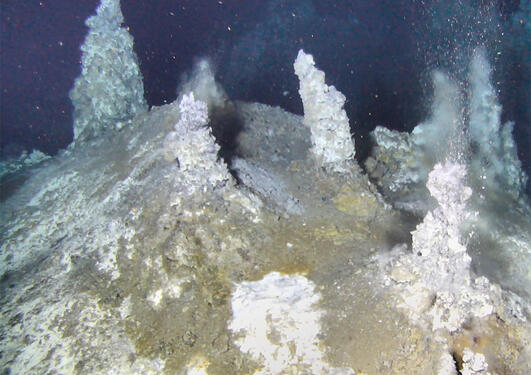Metagenomics-based enzyme discovery
Deep-sea hydrothermal vents are extreme environments for life. They represent one of a few ecosystems on Earth where life is based on chemosynthesis instead of photosynthesis.

Main content
Biotechnology is continually searching for new bio-catalysts to help make many industrial processes more efficient. Such little-explored and inaccessible communities as those discovered around deep sea hydrothermal vents provide unique opportunities for searching for new enzymes.
One process in particular that researchers would like to find catalysts for is the break-down of complex organic carbon compounds. It is not a process that is on-going to any great extent around deep-sea vents. Researchers at the Centre for Geobiology (CGB) wondered if vent microbes were capable of degrading complex organic carbon compounds.
“Soup’s up” – providing deep-sea microbes with lunch
Incubators filled with krill shells, wood pulp and wheat grains –complex organic carbon sources – were placed at sites near the deep-sea vents along the Arctic Mid-Ocean Ridge. The incubators were set out for a period of one year, first in 2011, and again in 2014. These incubators were then taken up again the following summers, 2012 and 2015, respectively.
After recovery, the communities that grew in the incubators were subjected to metagenomic studies aimed at enzyme mining. The krill-containing incubation chamber community studies revealed 9 near-complete organism genomes, 3 of which were related to organisms known to degrade organic substrates.
The results demonstrated that this approach is an effective one for enzyme mining in these deep-sea hydrothermal vent communities.


